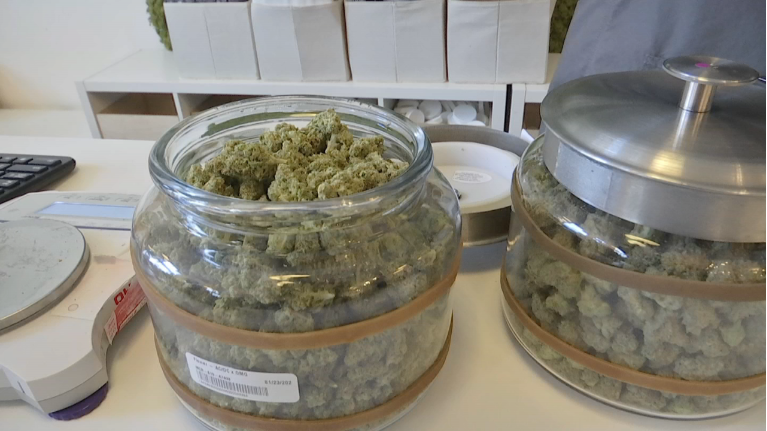The legalization of cannabis in New York is once again on the agend for Gov. Andrew Cuomo and many state lawmakers.
But even as the proposal is being pushed in part to aid a cash-strapped state by generating more revenue, the measure could once again face similar scrutiny over how it aids communities affect by stricter drug laws of the past.
Gov. Andrew Cuomo on Monday formally called for the inclusion of a marijuana legalization measure, pointing to the need to generate more cash for the state, but also as the criminal justice issue it has been considered for years by advocates.
"This will raise revenue and will end the over criminalization of this product that has left so many communities of color over policed and over incarcerated," he said.
And progressives are going to be closely watching to ensure that is the case with whatever final measure is agreed to. A joint statement from the Rev. Al Sharpton, former Bernie Sanders campaign chair and Ohio state Sen. Nina Turner and Retail, Wholesale and Department Store Union President Stuart Appelbaum pointed to the need for an equitable distribution of revenue, workplace compensation and the right to join a union.
“For decades I have been a vocal opponent of discriminatory drug policies," Sharpton said. "Now that cannabis is being legalized around the country, we have a responsibility to ensure that New York is at the forefront of directing the benefits its industry to the places that have been most negatively impacted from its previous criminalization."
While lawmakers in the state Senate and Assembly may be more eager to raise money this year given the economic crisis set off by the pandemic, some old roadblocks to passage are said to remain. Law enforcement and traffic safety concerns have continued to linger, leaving some legislators ambivalent.
The Legislature previously approved a package of bills decriminalizing marijuana in New York; legislators called it a good first step, advocates said it was a disappointing compromise.
But the revenue pull may be a strong one for the Legislature facing a multi-billion budget gap, even as the money from the program won't be fully realized in its first year of passage.
“Across the country citizens are starting to realize that Black and Latinx people live in a very different America. Fortunately, in places like New York, we have some leaders who understand that we must be intentional about our push towards equity – in all facets – to ensure that even the most genuine intentions are not usurped by generations of systemically embedded racial discrimination," Turner said.
"Recreational cannabis presents a once in a lifetime opportunity to materially change the way we develop industry in our nation. I look forward to working with elected officials and community stakeholders to ensure economic justice is inherent in New York’s policy."


